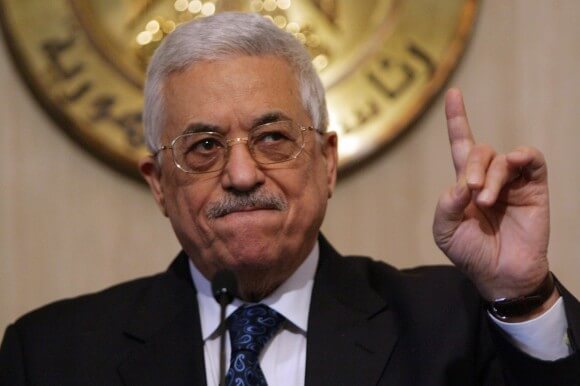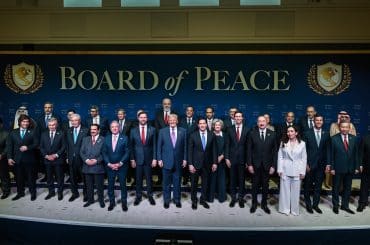The Palestinian Authority has announced it will seek a United Nations Security Council (UNSC) Resolution on Wednesday calling for an end of the Israeli occupation within two years. The draft legislation gives Israel this time to remove its forces from lands occupied in June 1967 and reaffirms per-existing agreements as a framework for returning to negotiations, said Ashraf Khatib a spokesperson for the Palestinian Liberation Organization (PLO) Negotiations Affairs Department via telephone to Mondoweiss. While the resolution makes no explicit mention of land swaps Khatib said it does support previous accords where the PLO granted Israel the possibility of territorial exchanges where up to 60-percent of settlers could remain in the West Bank.
The resolution marks a change from previous accords by the PLO in that it binds Israel to a time frame for ending the occupation. Other than that the central components of the draft are not new. Borders will be sought on the pre-June 1967 line, East Jerusalem will be the future capital and the refugee issue will be solved based on UN 194, seeking return and compensation. And like past agreements, there also will be the inclusion of the principle of “land for peace,” which opens the resolution to the same pitfalls that have plagued the prolonged Oslo Accords as the idea of “land swaps” have often been interpreted by Israel to allow for continued settlement expansion.
PA changes course after U.S. intervention
A PLO notice on the resolution distributed late Sunday evening said the draft, “should contain all the elements enclosed in the Arab Peace Initiative and our national fixed principles, including the identification of East Jerusalem as the capital of the State of Palestine and an integral part of our land as well as guaranteeing the right of refugees based on UN General Assembly resolution 194.” The announcement also applauded a Swiss effort to assemble the High Contracting Parties of the Fourth Geneva Convention to “confront Israel’s racial discrimination,” and violations to international law.
The Guardian’s Peter Beaumont reported yesterday on two texts of the legislation circulated—one drafted by Jordan and one by France. A major difference in the two documents, Beaumont wrote, was over whether the resolution would call for an absolute end to the occupation, or set a firm timeline for a return to peace talks, the latter from the French proposal.
The two-year term in the resolution is “for implementation” said Khatib, but “there is no details on how it will be implemented.” Khatib went on to explain that while the resolution will state Israel must end its occupation, the idea is that the document will be “a benchmark for any future negotiations,” suggesting elements of both the Jordanian and French drafts were included.
Washington has made inroads over the past few days to meet with Israeli and Palestinian leaders, largely seen as an attempt to formulate a version of the draft acceptable to both parties. On Tuesday Kerry will met with Chief Palestinian Negotiator Saeb Erakat in Rome, and yesterday he met with Israeli Prime Minister Benjamin Netanyahu in London. As Netanyahu was departing he said that he had “a serious conversation with U.S. Secretary of State John Kerry” on “a range of issues” and condemned the Palestinian initiative at the UN. “The attempts of the Palestinians and of several European countries to force conditions on Israel will only lead to a deterioration in the regional situation and will endanger Israel,” he said.
“We’ve made clear throughout these discussions with all of our interlocutors that there are certain things we could never support. (I’m) not going to outline those publicly,” said a State Department official to Reuters yesterday.
Days before announcing the UNSC resolution Palestinian leaders had considered changing or cancelling its security coordination with Israel following the death of a Palestinian minister who succumbed to a heart attack on Wednesday after an assault by an Israeli solider. On Friday Palestinian Authority President Mahmoud Abbas was expected to give a statement to the press at the Muqataa, the seat of government near Ramallah, but he cancelled the announcement after speaking with Secretary of State John Kerry by telephone. Then the expected announcement on altering security arrangements with Israel was replaced with the UNSC resolution, which had been first raised by Abbas in September at the UN General Assembly.
While the timing of Kerry’s meetings with Israeli and Palestinian officials and Abbas’s delayed announcement on a Palestinian response to the minister’s death suggests the U.S. had a hand in altering the UN resolution, Khatib maintained “our draft hasn’t been tapped by anyone other than what we discussed with the Arab League in Cairo ten days ago.” Kerry’s swift actions to hold meetings in Europe with Israeli and Palestinian leaders suggests Washington would prefer to sway the content of the Palestinian resolution rather than veto it outright at the UN.
Mondoweiss has learned that the UN has been informed by the Palestinians of their intentions to submit the resolution on Wednesday, but Jordan, a member of the Security Council and the country that will formally submit the petition, has said they have not yet received the document. If an agreement on the content is reached before Wednesday it is likely that the resolution will be turned over to the UN but no discussion or vote will take place.
A resolution to return to negotiations
While specific details on the content of the proposed resolution were not included in the PLO’s Sunday press release, Khatib said the text was written over a week ago in consultation with the Arab League in Cairo and will undergo minor changes until it is submitted. He added the resolution will approve “minor land swaps.”
“This will be the terms of reference for any kind of future negotiations,” continued Khatib, adding the resolution sought to avoid another round of prolonged talks and refocus the negotiations on commitments to final status issues, namely borders, Jerusalem and the right of return for some seven million Palestinians living outside of Israel’s 1948 borders. “We started with the Oslo agreement and the interim agreement has lasted for more than 20 years, and it should have lasted for only five years,” he added.
Khatib said this resolution omits mentions of land swaps but does follow the same principles outlined in the other accords where borders were to be based on “1967 with minor land swaps. The resolution cites the 2012 UN General Assembly legislation when the international community accepted Palestine as a non-member Observer. That document calls for “the terms of reference of the Madrid Conference, including the principle of land for peace, the Arab Peace Initiative and the Quartet road map to a permanent two-State solution to the Israeli-Palestinian conflict.”
Both the Madrid Conference and the Quartet road map accepted land swaps, where the Quartet’s supports up to 60-percent of settlers living on roughly two to four-percent of the West Bank. This addition to the resolution then renders it not unlike previous agreements where Israel has used the pretext of land swaps for continual settlement expansion.
However, Khatib said that even with land swaps the general spirit of the UNSC resolution would forbid any continuous settlement blocs that would compromise territorial continuity for a future Palestinian state. Khatib said the specifics on which geographic regions could be traded with Israel, “is not discussed how, it’s not part of the resolution.” He noted, “if there will be a land swap it will be a minor percentage, swapped with another area close to it.”




Frankly, Abbas is a traitor. By leaving in the “land swap” loophole, he is perpetuating the continuation of meaningless “talks”, and thus his cushy deal with the devil(s).
This will go nowhere – and my tax dollars will continue to fund this. Merry Christmas!
yes
The resolution will never see the light of day as it is written. The Palestinains themselves will water it down as to render it emanigless. In any event if it eveen gets close the US will veto it or if passed it has no teeth no enforcement and will be ignored like any other resolution that Israel doesnt like. Meawhile Germany will continue to fund warships and submarines, France will continue to give support and the US will keep the money flowing
Photo caption: “We will take Israel to the ICC and we will make Israel pay…not quite yet.”
It is not necessarily the case that both elements of both the Jordanian and French versions will be included in the resolution. The Guardian states clearly that the Palestinian team were offended by the French proposal:
The Jordanian proposal leaves open the potential for negotiation within the time frame of the two years simply because it accepts the framework of previous international works as binding on Palestinians (and thereby uses them to call the UN and international law to bolster Palestine’s legal claims).
The Palestinians state that there is not a specific timeline for implementation within the two years. They should call upon the Security Council to develop a timeline for an outside body, like NATO or UN peacekeepers, to provide security in successive areas of Palestine as the IDF evacuates those areas. If the areas that have been under negotiation in the Geneva accords are left for the last few months of evacuation, that should give Israel plenty of time to offer Palestine swaps for any or all of them. If Israel’s leadership is not able to make an acceptable offer before that time, then the window closes and Palestine’s border doesn’t deviate at all from the green line.